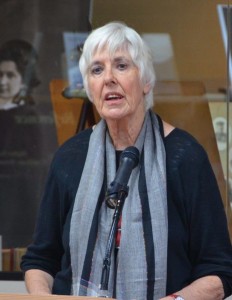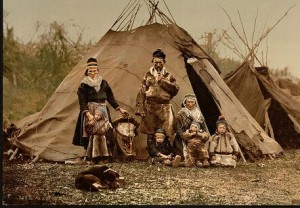
I have just read an interview with Anne Deveson on her recent diagnosis of brain injury – more specifically Alzheimer’s Disease.
Anne describes an approach to a diagnosis of dementia that contains hope and strength, not just the devastation one might expect.
It linked to a question that occupies my thinking – how would I respond in a similar situation?
Anne is a person who has influenced my thinking over the years. A strong, articulate advocate on a wide range of social justice issues. I see that again now as she publicly describes her responses to her diagnosis of dementia. It provides a potential answer to my own question.
Firstly quotes from Anne about her diagnosis from a recent interview, and a brief introduction to her work.
Reflections on a Diagnosis of Dementia
The following reflections are quotes from ‘National treasure Anne Deveson faces up to Alzheimer’s diagnosis” by Fenella Souter in The Age Good Weekend January 13th 2015
[button link=”http://www.theage.com.au/good-weekend/national-treasure-anne-deveson-faces-up-to-alzheimers-diagnosis-20150130-12mpwo.html” size=”large” style=”info” color=”silver” border=”#000000″ text=”dark” window=”yes”]An Interview: National Treasure Anne Deveson Faces up to Alzheimers Diagnosis[/button]
“…she is noble and inquiring and helpful, as if we are solving a puzzle together. “You have an illness, you’ve got to live with it, you’ve got to get over it,” she says firmly. “You have to realise that the whole of you isn’t the illness. I am not Alzheimer’s. I am myself…”
“One of her battles, she says, has been to not be consumed by the disease, with its rounds of appointments, care arrangements, being bossed about and so on. “Even if your brain goes, you can still enjoy the sky and the sun and the trees and all sorts of things, but it takes a while to get to that part.” She laughs again, glancing outside as if to hold on to that consolation.”
“So there is a fear, and you say, ‘Look, it’s a pretty awful illness to have,’ as you realise that your brain is gradually disappearing. It’s hard to come to terms with, but I don’t want to give a totally negative picture of what’s happening to me. I am a person who has had a fantastic life, a very interesting life, a very exciting life.”
“Every now and then, my optimism disappears because I’m human and also fairly realistic. But what doesn’t disappear – and I keep sounding like [cheery children’s book character] Milly-Molly-Mandy – what doesn’t disappear is a recognition of the immense friendship and support I’ve had from everyone around me, particularly from Georgia, my daughter.”
“What is there left if I don’t have hope?” she wrote. “… Hope is the value which keeps us human in the face of the unthinkable.”
Questions about a Diagnosis of Dementia
I have long thought about dementia and its impact within my own family.
While I have read that it is not hereditary, it is difficult not to wonder when several generations in my family, including my father, have had a diagnosis of dementia.
This interview with Anne, and the quotes above helped me to see a diagnosis of dementia, while life changing, can be faced with strength and hope.
A Brief Introduction to Anne Deveson
This is an inadequate introduction of an amazing woman, put together for those of you who may not have heard of Anne Deveson. No, I have not met Anne, only admired her from a distance!
Anne Deveson is a writer, film-maker, radio and television presenter , mother, and social justice campaigner providing advocacy for women,children, people with mental health issues and so much more. Anne was made a Member of the Order of Australia in 1983 for service to the media and an Officer of the Order of Australia in 1993 for service to community health.
For more information visit Australian Biography Anne Deveson
There is much to be found about Anne Deveson’s life and work online and in print. You could read about Anne through her books, for instance:
‘Waging Peace’, a recent work; “Looking back on a long and active life, Anne Deveson draws on a rich vein of public and private experiences to reflect on what made her the bold social commentator she became. Central among her lifelong preoccupations have been the questioning of war, and the promotion of peace.” Google Books
You can hear more from Anne Deveson about ‘Waging Peace’ in an ABC radio discussion ‘Anne Deveson Wages Peace’ with Phillip Adams. I have not yet listened to this interview but my respect for both Anne Deveson and Phillip Adams suggests it will be well worth a listen.
Brief moments shared in this interview give insight into Anne’s early life:
 ‘Tell Me I’m Here’ Anne’s shares her own family experience of a child with Schizophrenia. The difficulties with finding appropriate treatment and support for people living with mental illness, and community attitudes. The impact on family.
‘Tell Me I’m Here’ Anne’s shares her own family experience of a child with Schizophrenia. The difficulties with finding appropriate treatment and support for people living with mental illness, and community attitudes. The impact on family.
 ‘Resilience’ talking about why some people and communities are able to overcome adversity more so than others. What are the qualities that enable this to happen? Can it be learned? Research, experiences and examples from around the world are interwoven with events that unfolded in her own life. I recommend this book. I have my own favourite, dog eared, well loaned copy.
‘Resilience’ talking about why some people and communities are able to overcome adversity more so than others. What are the qualities that enable this to happen? Can it be learned? Research, experiences and examples from around the world are interwoven with events that unfolded in her own life. I recommend this book. I have my own favourite, dog eared, well loaned copy.
NOTE: You might dispute the inclusion of dementia as brain injury but as I explained in What Causes Brain Injury here at Changed Lives New Journeys the definition of brain injury is a broad one: any damage to the brain occurring after birth.

